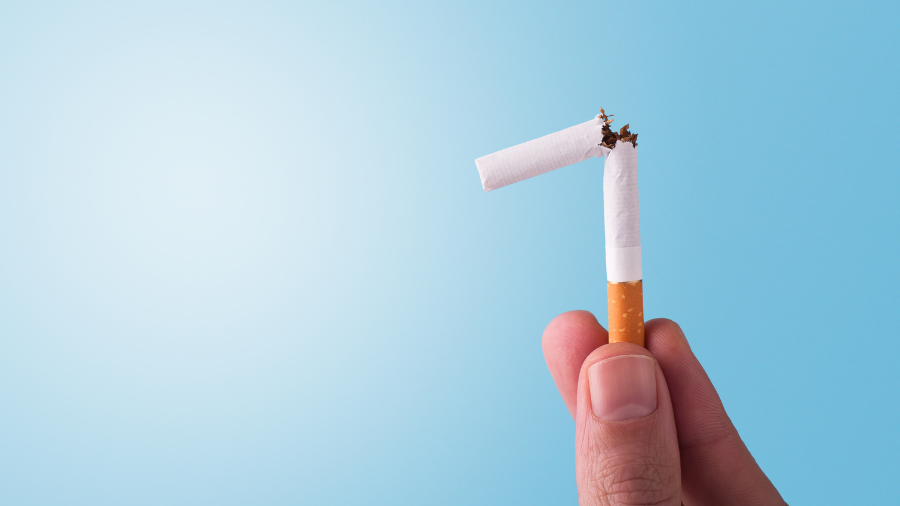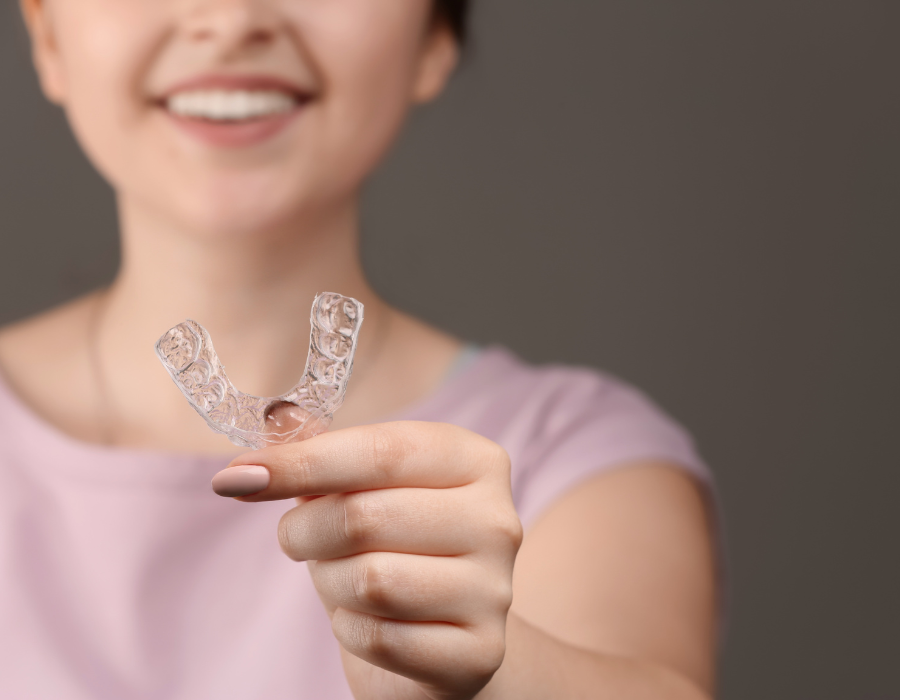By: Dr. Elizabeth Eggert
Clenching or grinding your teeth — also known as bruxism — is common, but that doesn’t mean it’s something you should ignore.
While some consequences of bruxism are simply annoying, others are more serious and can negatively affect your oral health. Let’s take a few minutes to dive into the impact of teeth grinding, signs to watch for, serious consequences that can occur, and how to treat and prevent it.
Understanding Teeth Grinding and Its Causes
Teeth grinding can affect children and adults alike. Small children are notorious for grinding when they’re cutting baby or permanent teeth, but they generally grow out of it. Not everyone grows out of bruxism, however, and adults often report their sleeping partners grinding so loudly it actually wakes them up out of a sound sleep!
While you might think of bruxism occurring only when you’re asleep (sleep bruxism or SB), it can occur just as frequently during your awake hours (awake bruxism or AB). In either case, the person generally doesn’t realize they’re clenching or grinding their teeth and often attributes their symptoms to the wrong causes.
Teeth grinding — and the uncomfortable side effects of it — generally has one of several root causes: improper alignment of teeth; stress, anxiety, anger; caffeine consumption, alcohol consumption; tobacco use; prescription medications; or airway issues.
Stress

Stress affects the human body in a variety of ways. It causes surges of adrenaline and cortisol, as well as increased heart rate and breathing.
When this happens, our bodies shift from “rest and digest” mode into “fight or flight” mode, and our muscles tense up and prepare for action. This tension is often noticeable in our neck, shoulders, and hips. Our jaw muscles often tense up too, and we grind unconsciously to cope with the pressure.
Caffeine

We love coffee and other foods and beverages with caffeine because they give us energy. But they’re also a muscle stimulant and can increase muscle activity in the jaw, resulting in grinding.
Tobacco

Just like caffeine, tobacco is a stimulant and increases muscle activity in the jaw.
Alcohol

Not only does alcohol consumption affect our sleep patterns, but it actually alters the neurotransmitters in our brain. Consequently, jaw muscles can overcompensate and become tense, resulting in grinding.
Also, if not properly managed, alcohol consumption can lead to dehydration, which makes our mouth dry and can lead to teeth grinding.
Airway Issues

Sleep disordered breathing can result in teeth grinding. If you’re having a difficult time breathing at night, you may unconsciously move your teeth around or grind them to open up your airway. This also occurs during the day, unconsciously. For example, if your body feels that your airway is more “open” with your jaw in a position that puts more stress on your teeth, but less stress on your airway, your body will choose to keep your airway open over keeping pressures off your teeth.
Prescription Medications

Some prescription medications, including antidepressants and psychiatric meds, can alter neurotransmitters in the brain and cause jaw tension and teeth grinding.
Tip: If you suspect you’re grinding your teeth as a result of a prescription medicine, talk to your prescribing doctor to see if your dosage can safely be adjusted or if there is another medication choice you can try.
Impact of Teeth Grinding: Signs and Symptoms

Do you think you or your loved one might be dealing with bruxism? Here are some signs to watch for:
- Tooth damage: chipped, worn down, fractured, or loose teeth
- Tooth sensitivity
- Headaches or earaches
- A jaw that clicks or doesn’t open and close smoothly
- A sore jaw
- Irritated cheek tissue
- Tongue indentations
- Gum recession
- Gingivitis
- Damaged dental work
Tip: If you catch yourself clenching or grinding, place the tip of your tongue on the roof of your mouth behind your top teeth. This will automatically unclench your teeth and relax your jaw. This isn’t a permanent fix but can help provide relief from jaw tension in the moment.
Preventive Measures and Lifestyle Changes
You and your loved ones don’t need to live with the uncomfortable and potentially damaging effects of teeth grinding.
Successful treatment of bruxism addresses the root cause: If the root cause is physiological, dentistry, orthodontia, or airway treatment could help; If the root cause is stress, managing it is imperative. In other words, there are several effective treatment options! Let’s take a closer look:
Splint/Occlusal Appliance

In order to protect your teeth from chipping, cracking, or wearing down during sleep bruxism, Dr. Elizabeth Eggert or Dr. Jeff Eggert can create a custom in-mouth appliance, or splint. This splint will fit your teeth perfectly, protect their surfaces, and absorb bite force. There are different ways to design splints based on your individual needs. Dr. Jeff and Dr. Elizabeth are happy to help you determine which might be best!
Dental Restorations
When teeth grinding has been undetected or left untreated for a long time, teeth can become permanently damaged.
If needed, Dr. Elizabeth Eggert or Dr. Jeff Eggert can create crowns or veneers for your teeth to restore their strength and integrity and improve the appearance of your worn-down teeth. Properly shaping the teeth can also help relieve extra pressure on your jaw.
Orthodontia
If Dr. Elizabeth or Dr. Jeff determines that the root cause of bruxism is due to severely misaligned teeth or jaw bones, they will refer you to an orthodontist for a consultation or sometimes we can even do the orthodontics in our office with Inivisalign. Braces and other orthodontic interventions can widen your palate, realign teeth, and reposition the jaw, correcting your bite. They can even help with breathing issues!
Treatment for Airway Issues
If Dr. Elizabeth Eggert or Dr. Jeff Eggert suspects that sleep disordered breathing is a factor for you, they will schedule an evaluation and discuss possible treatment options, including the reputable Seattle Protocol.
Botox
If the grinding is persistent and the effects are severe, Botox injections can provide temporary relief. Botox is a neurotoxin that can be injected and has been found to temporarily relax muscles and reduce nerve signals in the jaw that lend themselves to teeth grinding.
De-Stressing Techniques:
If you’re under significant stress and it’s the likely cause of your teeth grinding condition, pursuing de-stressing techniques, such as therapy, breathwork, stretching, and journaling, can help reduce stress or help you manage it better. These interventions can also help alleviate overall body tension and stress-induced pain.
If you’re dealing with symptoms of teeth grinding, we’d encourage you to schedule a bruxism evaluation appointment with Dr. Elizabeth Eggert or Dr. Jeff Eggert. Give our office a call at 651.482.8412 to schedule your appointment.
